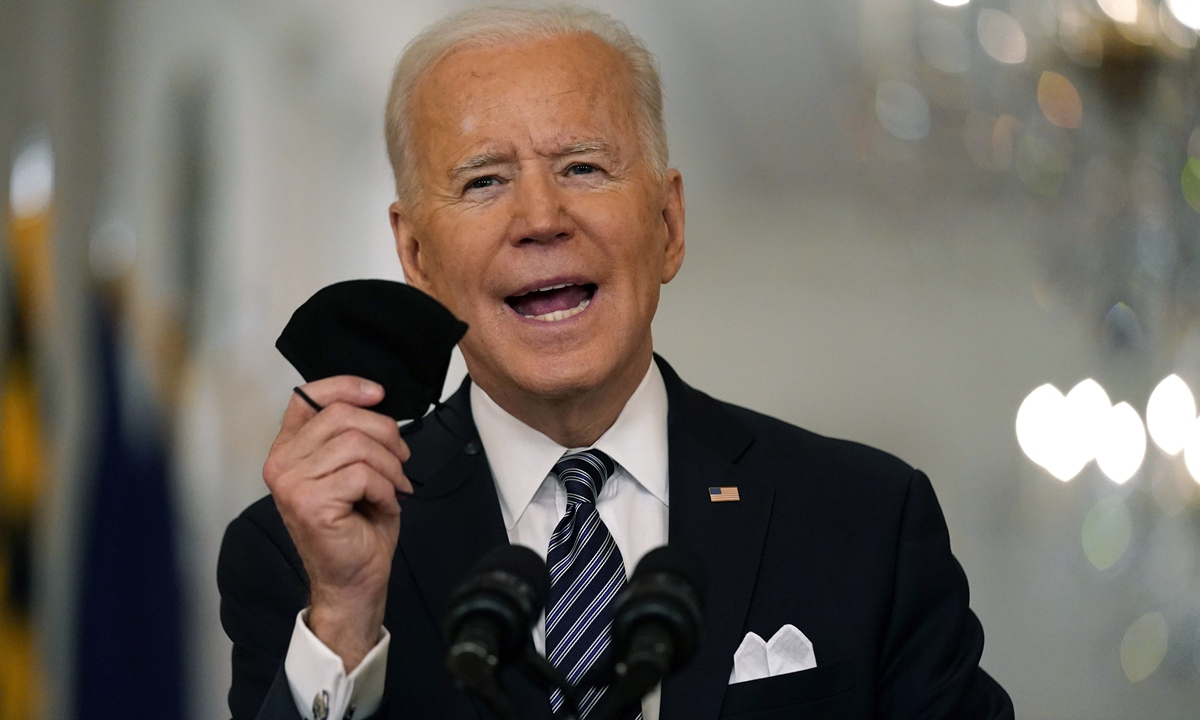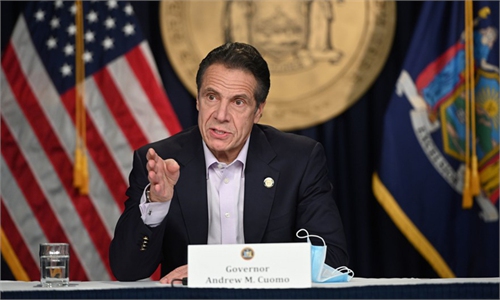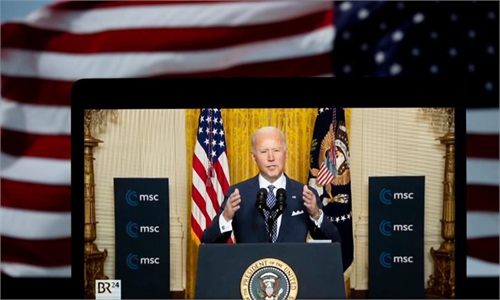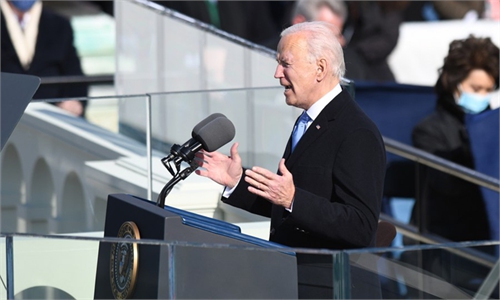US may miss Afghanistan exit deadline
Biden says it will be ‘tough’ to pull out American troops before May 1

US President Joe Biden holds up his face mask as he speaks about the COVID-19 pandemic during a primetime address from the East Room of the White House on Wednesday in Washington. Photo: AP
US President Joe Biden has said that it would be "tough" to meet the deadline to withdraw American troops from Afghanistan by May 1, as agreed with the Taliban in a deal secured under Donald Trump.The Taliban insurgents have largely stuck to a promise not to attack US or other foreign troops since the agreement was struck in February in 2020, but they say the date to end America's longest war is inflexible.
"Could happen, but it is tough," Biden said when asked about the May 1 deadline in a TV interview broadcast on Wednesday.
The Taliban quickly reacted to Biden's comments, with a spokesperson telling AFP there would be "consequences" if the US did not stick to the agreed timetable - further raising pressure on the fragile peace process.
Biden also took a direct swipe at Trump's Afghanistan policy, saying it "was not a very solidly negotiated deal" that the then-president oversaw.
"The failure to have an orderly transition from the Trump presidency to my presidency... has cost me time and consequences. That's one of the issues we're talking about now, in terms of Afghanistan," he added.
The US is supposed to pull out all its troops by May 1 in an agreement that saw the Taliban agree to peace talks with the Afghan administration of President Ashraf Ghani.
The insurgents also vowed not to allow territory to be used by "terrorists" - the original goal of the US invasion following the September 11, 2001 attacks.
But the supposed peace talks held in Qatar since September have made little progress.
Washington wants to jump-start the process and get the Taliban and Afghan government to agree to some form of power-sharing.
Major urban centers in Afghanistan are in the grip of a worsening terror campaign in the form of deadly attacks targeting politicians, civil servants, academics, rights activists and journalists.
The Taliban deny all responsibility but the Afghan government says that they are to blame - either directly, or by using proxies.
As the May deadline looms closer, Russia on Thursday is to host a conference featuring high-level delegations from the Taliban and Afghan government - as well from the US, Pakistan and China.
At the talks, the insurgents will be led by the Taliban's co-founder and deputy leader Mullah Abdul Ghani Baradar, while the Afghan government side is headed by former chief executive Abdullah Abdullah.
Pakistan, which holds the most outside influence over the Taliban, is represented by veteran diplomat Mohammed Sadiq, while the US sent long-time Afghan envoy Zalmay Khalilzad.
AFP



